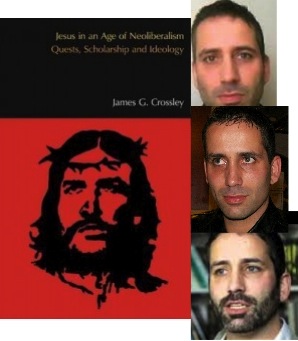
This post is an overview of chapter 4 of Jesus in an Age of Neoliberalism by James Crossley and is part of the series reviewing this book.
Crossley’s stated purpose of this chapter is
to show that a dominant feature of the quest for the historical Jesus — Jesus as Great Man — works in harmony with a dominant capitalist understanding of causality, particularly the importance of a freely acting autonomous individual with little concern for material conditions as historical mover. (p. 68)
(Once again we see the ambiguity and and vagueness of definition coming through as so often in Crossley’s works: “a dominant understanding”, “Jesus as Great Man”, “working in harmony with” — these leave lots of room for many exceptions, qualifications and imprecision and even inconsistencies in hypothesized relationships.)
What troubles Crossley is that the traditional focus of historical Jesus studies has concentrated on the qualities and actions of the person of Jesus in order to explain the formation of Christianity and tended to either overlook or minimize the role of larger historical forces (sociological, economic, political) in Christianity’s emergence.
Most historical Jesus studies attempt to identify sayings and doings of Jesus the individual. They assume he personally is the decisive factor, effectively independent of other historical forces or trends, that produced the Christian religion. Crossley links this approach to what he calls “individualism” or “individualistic history”, both in this context said to mean that the historian writes as if the individual acts all powerfully and autonomously in apparent disregard for larger forces in the material world.
So far I can sympathize with Crossley’s concern. This contrast between historical Jesus studies and the sorts of historical studies in other fields (including historical biographies) was the first thing that struck me when I began to read works about the historical Jesus. To anyone who is even slightly familiar with other historical biographies it is very clear that the study of Jesus is in a class of its own.
But Crossley goes further and directly associates such an “individualism” with capitalist values. Continue reading “Jesus and the “Great Men” View of History”
